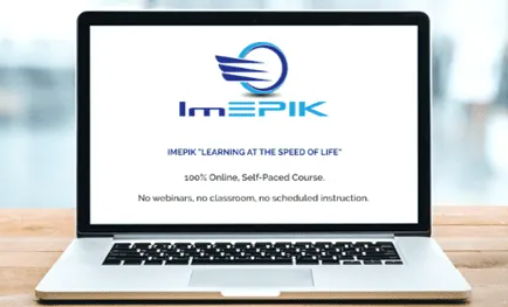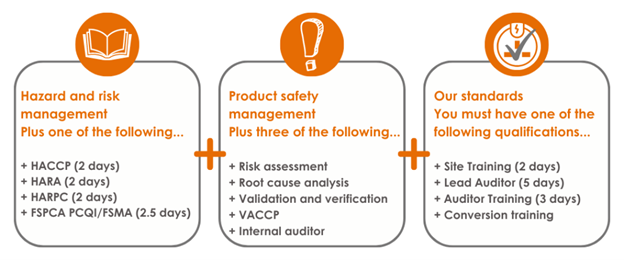




How PCQI Training Supports the BRCGS Food Safety Standard in Food Manufacturing
PCQI

Through the FDA’s standardized curriculum for PCQI training, the Preventive Controls Qualified Individual becomes knowledgeable and skilled at developing, implementing, and overseeing the food safety plan as required under FSMA’s Preventive Controls for Human Food Rule (PCHF). In this role, the PCQI training supports and complements the BRCGS certification as well as the standard for auditors to follow.
BRCGS certification, initiated by the British Retail Consortium, is an internationally recognized standard detailing the requirements for a comprehensive management system for food safety. The standard is built around ensuring supplier compliance and assurance, focusing on areas such as food safety plans, site standards, product control, process control and personnel. Examples of the intersection of PCQI training and BRCGS include:
- Hazard Analysis and Preventive Controls: Both PCHF and BRCGS emphasize the importance of a risk-based approach to food safety. PCQI training delves deep into hazard analysis and identification of preventive controls. This dovetails with the BRCGS requirement for robust hazard and risk analysis systems.
- Documentation and Record Keeping: A component of the food safety plan in PCQI training is the proper documentation of SOPs, hazard analysis, monitoring records and corrective actions. BRCGS also places a strong emphasis on documentation, seeing it as evidence that a food safety system is functioning effectively.
- Supplier Verification: BRCGS has stringent requirements regarding supplier monitoring and raw material controls. PCQI training includes essential concepts and practices of supplier verification of all ingredients requiring a preventive control to comply with the PCHF Rule.
- Training and Culture: BRCGS has a renewed emphasis on food safety culture. It seeks to ensure that everyone within an organization, from top-level management to shop-floor workers, understands and values food safety. The PCQI training reflects a similar ethos, highlighting the PCQI as a leader and advocate for a proactive food safety culture.
- Continuous Improvement: BRCGS mandates a regular review of systems, feedback reception and continuous improvement of food safety mechanisms. PCQI-trained personnel are equipped with the tools to analyze data, understand the results, and implement improvements, aligning with the spirit of BRCGS.
Organizations that have invested in PCQI training for their personnel inherently possess a foundational knowledge and skill set that streamlines BRCGS compliance. In fact, the PCQI course is one of the courses that can count toward becoming a BRC Global Standards professional. www.1stc.uk/e-learning-courses/
Internationally recognized and only available to those who work at a BRCGS-certified site, along with PCQI, these are the courses accepted to become a BRC Global Standards Professional:


With a PCQI onboard, facilities are well-positioned to meet the hazard analysis and risk-based preventive approach that BRCGS food safety emphasizes. Conversely, for organizations already certified to BRCGS, having a PCQI ensures that the preventive controls and FSMA-related requirements are robustly implemented, thus reducing the risk of non-compliance with U.S. regulations.
The mutual benefits are clear. The confluence of regional regulations and international standards is inevitable in the global food market. Understanding and leveraging the synergies between tools like PCQI training from ImEPIK and BRC-GS can be a strategic move. Food manufacturers are not only ensuring compliance with various regulations but also signaling to stakeholders, consumers, and partners a strong commitment to producing safe, high-quality food products.
As food safety challenges evolve, so should the industry response. PCQI training, alongside adherence to global standards like BRCGS certification, equips manufacturers with the arsenal needed to ensure that every morsel of food they produce is as safe as it is delicious.
Learn more and get enrolled in 100% online PCQI training, provided in partnership by IFSQN and ImEPIK.
About the Author:
Kathryn Birmingham, Ph.D. is Vice President of Research & Development at ImEPIK, LLC and holds a Lead Instructor Certificate for the FDA's PCQI course. She is one of the curriculum developers for ImEPIK's PCQI Online© course software. She has more than 30 years experience in curriculum development, higher education administration and food safety.










